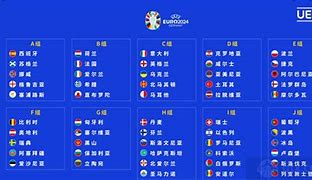欧洲杯24支球队的足球盛宴
296
2024 / 06 / 03
The UEFA European Championship, commonly referred to as the Euros, is one of the most prestigious football tournaments in the world, second only to the FIFA World Cup. This quadrennial competition brings together the best national teams from Europe to determine the continental champion. Over the years, the number of participating teams in the Euros has evolved significantly, reflecting the growth and development of European football. This article explores the historical changes in the number of teams, the reasons behind these changes, and the impact on the tournament's competitiveness and popularity.
The inaugural European Championship in 1960 featured just four teams. This small number was due to the tournament's experimental nature and the limited infrastructure and resources available at the time. The format was simple: a knockout competition with semifinals, a thirdplace match, and a final. This format persisted until 1976, with the number of teams remaining at four.
The expansion to eight teams in 1980 marked a significant shift. This change allowed more nations to participate and increased the tournament's reach and appeal. The format also evolved, introducing a group stage followed by a final, which added more matches and excitement.
The next major expansion occurred in 1996 when the tournament was extended to include 16 teams. This change was in line with the growing popularity of football across Europe and the increasing professionalization of the sport. The group stage was expanded, and the knockout phase was adjusted to accommodate the additional teams.
In 2016, the Euros underwent its most recent expansion, doubling the number of teams to 24. This decision was met with mixed reactions. While it allowed more countries to participate and potentially increased the tournament's global appeal, critics argued that it diluted the quality of the competition and made the group stage less competitive.

The expansion of the Euros has had several impacts on the tournament. Firstly, it has broadened the geographical representation of participating nations, allowing countries that traditionally do not qualify for the World Cup to compete at a high level. This has increased the tournament's popularity in these countries and has helped to grow the sport across Europe.
Secondly, the increase in the number of teams has necessitated changes in the tournament format. The introduction of a group stage in 1980 and its expansion in 1996 and 2016 have added more matches to the tournament, extending its duration and increasing its commercial value. However, the larger group stage has also led to debates about the competitiveness of the early rounds, with some matches lacking the intensity seen in the knockout stages.
Thirdly, the expansion has impacted the preparation and logistics of the tournament. Hosting a larger Euros requires more stadiums, infrastructure, and organizational capabilities. This has implications for the host nations, which must invest heavily in preparation and can face significant costs.
The future of team numbers in the Euros remains a topic of discussion. While the current format of 24 teams has broadened participation, there are calls to revert to a smaller number to maintain the quality and competitiveness of the tournament. Alternatively, some suggest further expansion to include all UEFA member nations, though this would significantly alter the tournament's format and could dilute the competition further.
The evolution of team numbers in the Euros reflects the growth and development of European football. Each expansion has brought new challenges and opportunities, impacting the tournament's format, competitiveness, and popularity. As the Euros continue to evolve, the balance between inclusivity and quality will remain a critical consideration in determining the optimal number of participating teams.
This exploration into the number of teams in the Euros highlights the dynamic nature of international football competitions and underscores the importance of strategic decisionmaking in maintaining the tournament's status as a premier sporting event.
